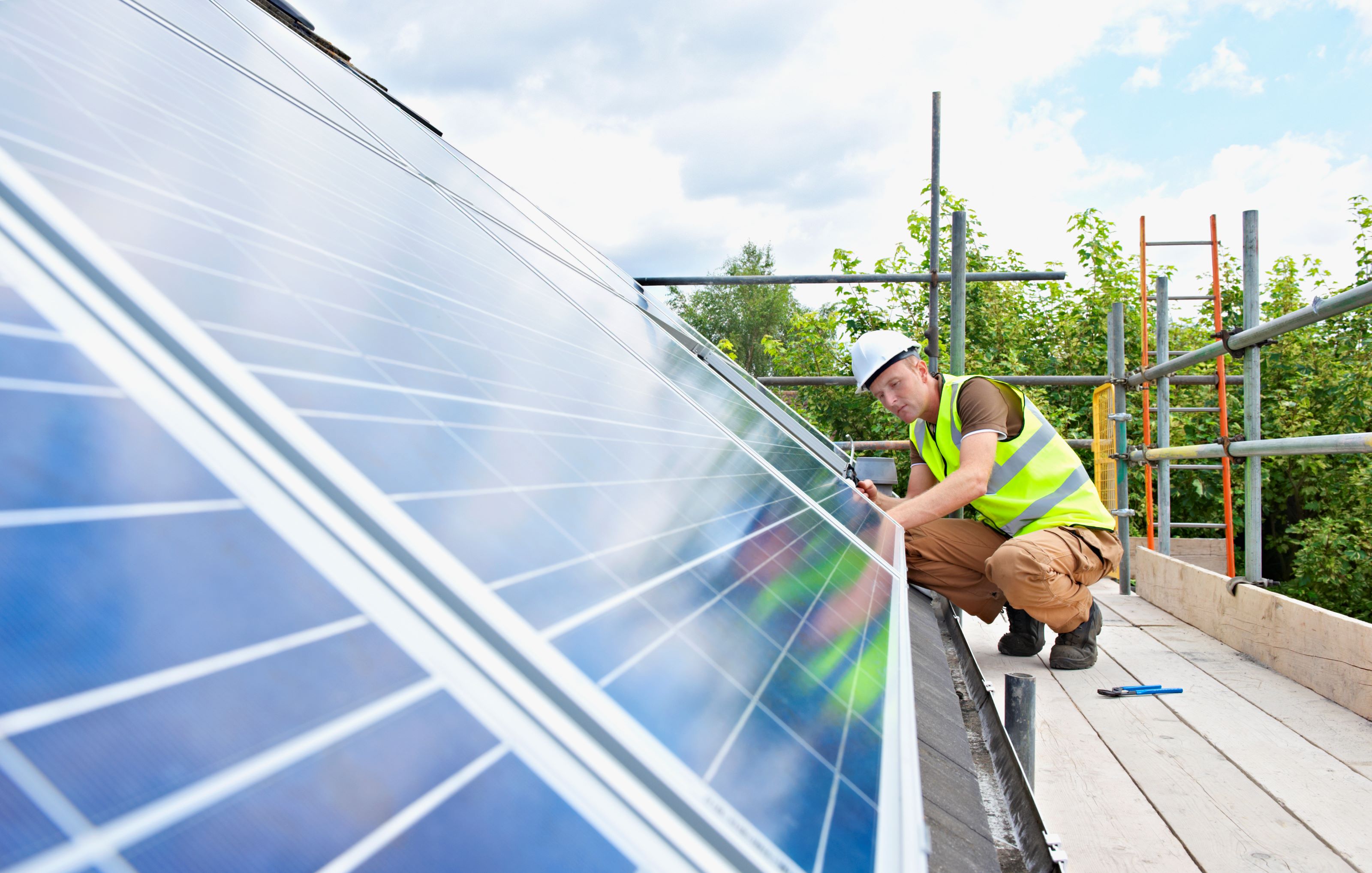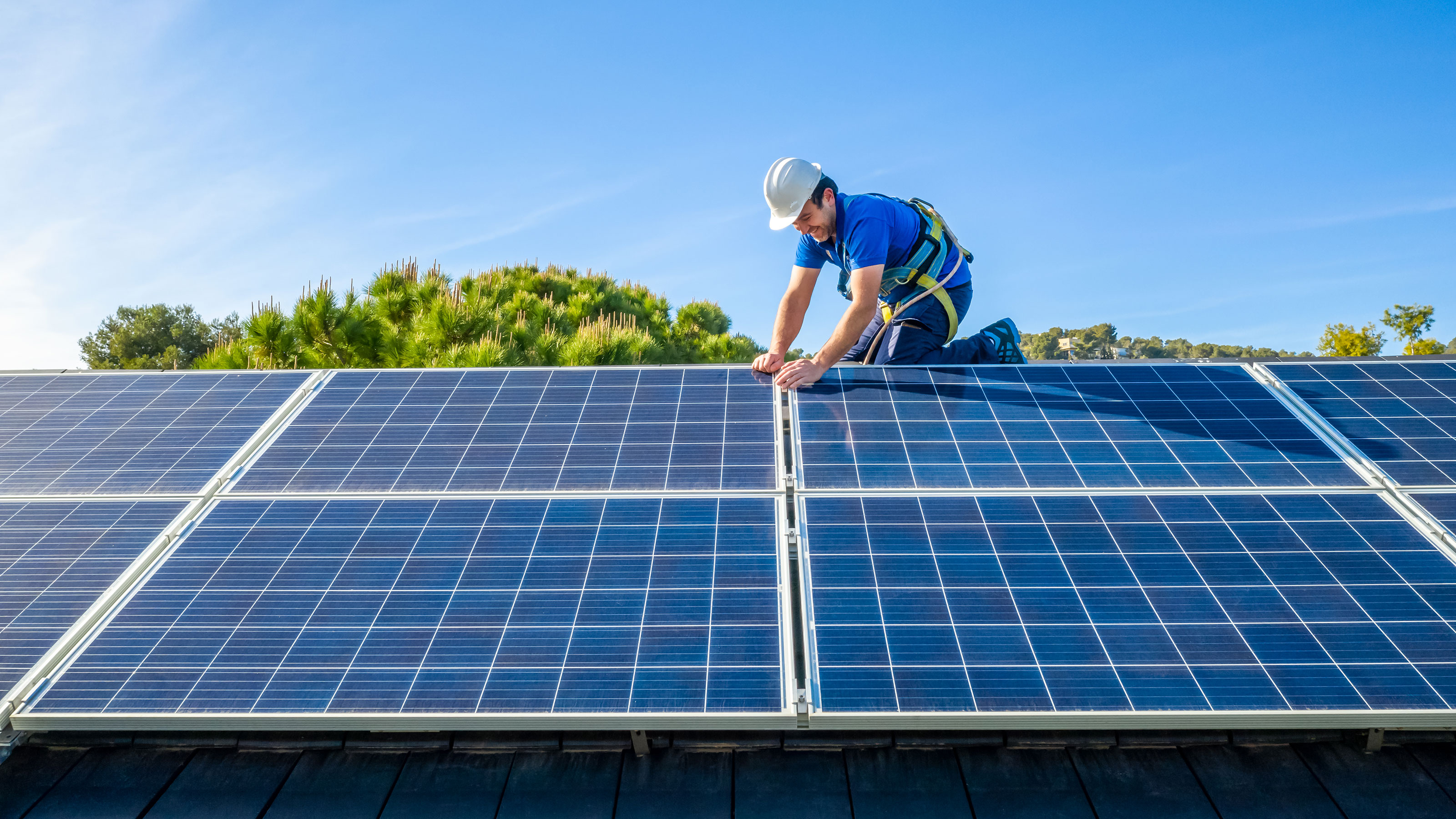Record numbers of solar panel installations in 2023, says MCS — but could accreditation slow it down?
Despite record figures of solar panels in 2023, some industry experts are criticising the MCS for their restrictive accreditation scheme, which is said to be slowing down the number of installations

There were a record number of solar panel installations in the first half of 2023 in the UK with over 60,000 solar panel installations alone in Q1, according to the MCS (Microgeneration Certification Scheme).
The MCS, the industry’s official standards body, also revealed that there were more green energy installations in June alone than in any six-month period in previous years, with solar panels representing the largest increase in these figures.
However, the body has also been criticised for its accreditation scheme for installers with a shortage of installers being blamed on the difficulties in gaining MCS accreditation, which is said to be restricting an even larger amount of installations.
114% increase in solar panel installations
There were 60,004 solar panels installations in Q1 of 2023 according to the latest figures from the MCS Data Dashboard.
Solar PV installations from January to March 2023 accounted for 50,719 of these, representing a 114% increase on the number of installations for the same period in 2022 (23,747) and the highest amount since 2015.
The surge in green energy adoption by households is leading to an increase in the installation of renewable energy sources. This growth is set to surpass the previous record achieved in 2012, when there was a rush to install solar panels before government incentives like Feed-In Tariffs (FiT) scheme ended.
Currently, the UK has a combined capacity of 4 gigawatts (GW) from small-scale renewable energy installations at homes and businesses. To put this in perspective, this capacity is higher than the nuclear power plant being built at Hinkley Point and nearly twice the capacity of Europe's largest gas power plant located near Pembroke in Wales.
Get the Homebuilding & Renovating Newsletter
Bring your dream home to life with expert advice, how to guides and design inspiration. Sign up for our newsletter and get two free tickets to a Homebuilding & Renovating Show near you.
Ian Rippin, CEO of MCS, commented: “The year has got off to a remarkable start as our robust, near-real-time data demonstrates how we are playing a vital role in domestic decarbonisation."
“We need to continue to push this expansion to meet our shared national ambitions to reach net zero by 2050. More consumers have the confidence to invest in small-scale renewables now than ever, but we have to make that transition even easier.”
Further grants expected
The increase in solar panels will help meet UK government aim of reaching 70GW of solar capacity by 2035.
The government has committed £4 billion towards the Energy Company Obligation Scheme, which sought to increase renewable energy installations, such as solar panel and further solar panel grants have been touted in the next year as part of the Energy Security Bill to help subsidise costs of installations.
Rishi Sunak also announced in early 2022 that VAT for solar panels will also drop to 0% for five years in to further increase the amount of people installing solar panels as well as making it easier to gain planning permission for solar panels.
Is MCS slowing down installations?
There is a skills shortage in the solar installations sector in the UK currently, with not enough installers to meet demand, with difficulties with installers gaining MCS-accreditation partly blamed for this.
The number of MCS-certified has risen with demand with number of solar PV contractors increasing by 66% in the last 12 months, but this is still not enough to meet demands.
Although being MCS is not required to install solar panels, it is recommended that homeowners choose MCS-accredited solar panel installers.
However, Octopus Energy made the decision to accept solar installations on their Smart Export Guarantee tariffs without MCS accreditation.
Solar Energy UK chief executive Chris Hewett, criticised the decision by Octopus, stating: “Ensuring the increasing demand for residential solar and energy storage is delivered by installers who can work at a high standard of quality is essential for consumer protection, as well as the country’s net zero ambitions.
"This is why Solar Energy UK recommends that all installers have up to date MCS certification, which is backed by an enforcement function to ensure these standards are maintained. We urge all companies offering residential solar and batteries to require this certification of any installers they contract.”

However, Griff Thomas, managing director at GTEC, said the move by Octopus Energy looks certain to speed up the uptake of solar panels and may incentivise more people to train as solar installers.
He stated: "This change will alleviate the backlog created by installers who may be trained to install (solar) PV but haven’t been able to access the market due to their lack of MCS certification.
"In fact, you could argue that the strict adherence to MCS certification might have hindered market growth and innovation by limiting entry to only a select group of certified installers. Octopus’ new approach acknowledges that many skilled contractors without MCS certification can competently handle renewable technology installations.
"If we are going to meet the UK is to meet its net zero targets, we need processes in place that ensure successful renewable adoption without obstruction."

News Editor Joseph has previously written for Today’s Media and Chambers & Partners, focusing on news for conveyancers and industry professionals. Joseph has just started his own self build project, building his own home on his family’s farm with planning permission for a timber frame, three-bedroom house in a one-acre field. The foundation work has already begun and he hopes to have the home built in the next year. Prior to this he renovated his family's home as well as doing several DIY projects, including installing a shower, building sheds, and livestock fences and shelters for the farm’s animals. Outside of homebuilding, Joseph loves rugby and has written for Rugby World, the world’s largest rugby magazine.
